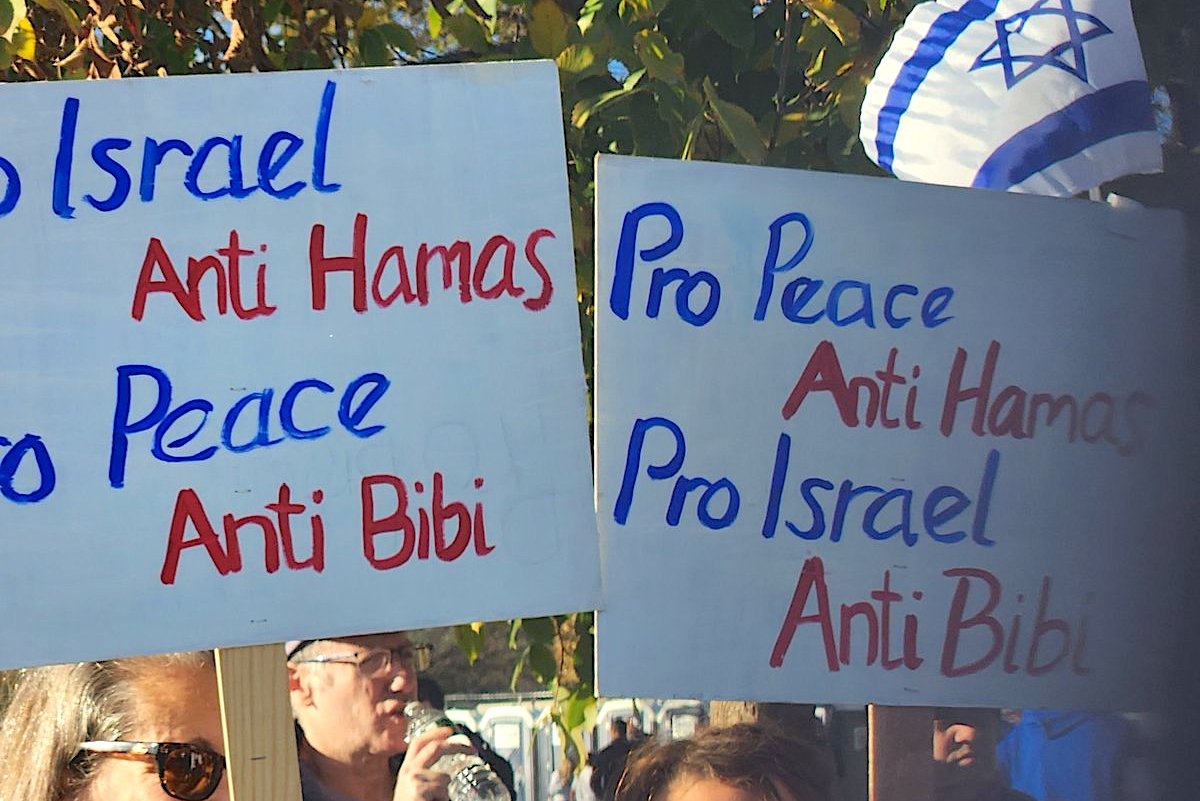WASHINGTON (JTA) — Americans for Peace Now, a left-wing pro-Israel organization, is calling for an end to the Israel-Hamas war, the first American Zionist group to do so after more than three months of fighting.
“Continuing this devastating war poses unacceptable risks for Israel, Gazan civilians and the entire region,” James Klutznick, the group’s chairman, said Monday in a statement. “For the sake of the security and wellbeing of civilians in Israel and in Gaza, the Biden administration must push Israel to bring about an immediate cessation of hostilities and pivot from war to peacemaking.”
The statement is a sign that American Jewish groups’ broad support for Israel in the wake of Hamas’ Oct. 7 invasion has fractured. Up until now, the only Jewish groups to call for a ceasefire have been anti-Zionist or non-Zionist, and have focused their criticism on Israel since the outset of the current conflict. The rest of the Jewish organizational spectrum, from right to left, expressed support for Israel’s war effort.
Since Hamas’ attack, which killed some 1,200 people, largely civilians, Palestinian casualties have mounted. According to the Hamas-run Gaza Health Ministry, 23,000 Palestinians have been killed. That number does not differentiate between civilians and combatants, but Israel says that a third of the Palestinian casualties are combatants.
Those casualties have eroded the Jewish consensus, as has the rhetoric of some far-right members of Prime Minister Benjamin Netanyahu’s coalition. Last week, the Union for Reform Judaism, representing the largest American Jewish religious denomination, called on Netanyahu to rein in ministers who are calling for the removal of Palestinians from Gaza.
Americans for Peace Now is a member of the Conference of Presidents of Major American Jewish Organizations, the consensus-driven foreign policy coalition of American Jewish organizations that has one overriding mission: backing Israel. Other left-leaning groups in the Conference have not yet called for an end to the war.
J Street, the liberal Jewish Middle East policy group that serves as the central address for pro-Israel progressives, has likewise continued to express support for the war. But in recent weeks it has said Israel must do more to protect civilian life and has called on the Israeli government to rebuff calls to transfer civilians out of Gaza. A month ago, it issued a warning that if those changes do not occur, “J Street will no longer be able to provide our organizational support for the current military campaign.”
J Street has yet to withdraw its support. But last week it announced that it would not hold an annual conference this year due “to the state of the ongoing conflict” — suggesting that controversies around the war might inhibit attendance.
“Due to the state of the ongoing conflict, we have decided to postpone the upcoming 2024 Convention to 2025,” J Street said on its website. “While we’re disappointed not to be able to hold the Convention this coming April as planned, we’re also confident that this is the best way to ensure that the Convention is as large, vibrant and meaningful as we know it can and should be.”
The announcement was also notable as it meant that the lobbying group would not be holding its convention in an election year. The American Israel Public Affairs Committee, the largest pro-Israel lobby, likewise has not held its annual Policy Conference since 2020.
J Street is an ideological ally of Americans for Peace Now, and the two groups were part of a “peace bloc” at a massive pro-Israel rally in November on the National Mall in Washington D.C. The groups expressed discomfort afterward with the belligerence of some of the speakers, and opposed the presence of John Hagee, who leads a right-leaning Christian pro-Israel group, on the rally’s agenda.
There have been other signs of a fracturing Jewish consensus. In October, shortly after Hamas’ attack, Jewish Democrats in the U.S. House of Representatives in October initiated a statement backing President Joe Biden’s wholehearted support for Israel, and all 24 House Jewish Democrats signed on. By December, however, a number of them were joining calls for a ceasefire — including one of the initiators of the October statement, Rep. Jamie Raskin of Maryland.
JTA has documented Jewish history in real-time for over a century. Keep our journalism strong by joining us in supporting independent, award-winning reporting.






